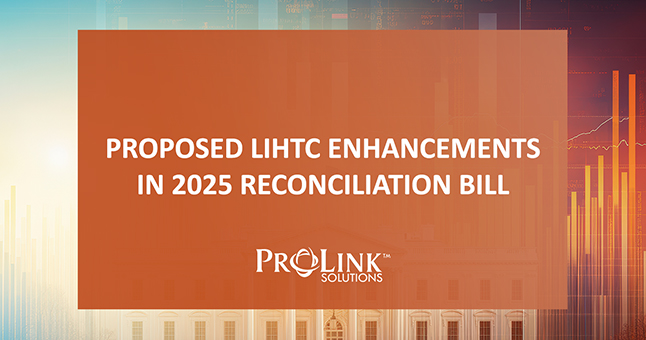Last week, part of the draft tax text for a major 2025 reconciliation bill was released by the House Ways and Means Committee, aimed at extending provisions of the Tax Cuts and Jobs Act, which is set to expire at the end of this year. NCSHA, along with thousands of advocates, pushed to include a provision from the Affordable Housing Credit Improvement Act that would boost the supply of rental housing.
The bill includes three significant enhancements to the Low-Income Housing Tax Credit (LIHTC) program, aimed at increasing the development and preservation of affordable housing nationwide.
LIHTC Enhancements Included in the Bill
First, the annual Housing Credit volume cap for 9 percent LIHTC properties will be increased by 12.5 percent. This temporary increase will begin in 2026 and remain in effect through 2029, providing states with greater allocation authority to support more affordable housing developments.
Second, the bill lowers the bond financing threshold for developments using the 4 percent LIHTC. Specifically, projects placed in service after December 31, 2025, will only be required to finance 25 percent of their costs with tax-exempt bonds. To qualify for this reduced threshold, the bonds must be issued prior to January 1, 2030. This change is expected to significantly expand the number of financially feasible 4 percent Housing Credit projects, particularly in rural or financially constrained environments.
Third, the bill provides a targeted 30 percent basis boost for properties located in Native American and rural communities. This increase in eligible basis, to be allocated at the discretion of state Housing Finance Agencies (HFAs), will apply to properties placed in service between December 31, 2025, and January 1, 2030. The basis boost is designed to strengthen the financial viability of projects in underserved and high-need areas, where development costs are often high and traditional financing sources are limited.
Opportunity Zones (OZ)
The proposed bill extends, expands, and reforms the Opportunity Zones (OZ) tax incentive. It allows current OZ designations to continue through 2026, designates new OZs (including some rural areas), consolidates tax basis increases for post-2026 investments, enhances rural OZ benefits, revises ordinary income treatment, and introduces new rules for improving structures in rural communities. The bill also establishes annual reporting requirements for opportunity funds and OZ businesses, with penalties for noncompliance.
ProLink Solutions is proud to be an affiliate of the National Council of State Housing Agencies (NCSHA), which has been at the forefront of advocating for provisions drawn from the Affordable Housing Credit Improvement Act. This bipartisan initiative aims to strengthen the Low-Income Housing Tax Credit. NCSHA, alongside over 2,600 organizations and businesses, has been a strong advocate for these reforms to help address the nation’s growing affordable housing crisis. Additionally, NCSHA played a crucial role in preserving the tax exemption for private activity bonds (PABs), which were at risk of being eliminated in earlier drafts of the Tax Cuts and Jobs Act.
In the Future
As the Affordable Housing Credit Improvement Act moves through revisions and review by the House Ways and Means Committee, followed by further consideration in the House and Senate, ProLink Solutions is closely monitoring its potential impact on affordable housing finance. With lawmakers aiming to finalize the bill by July 4, ahead of midyear deadlines, we understand the importance of staying ahead of any regulatory changes.
We want to reassure our ProLinkHFA users that our platform is well equipped to handle any changes to the LIHTC program, regardless of how the bill evolves. Our existing technology is designed to seamlessly adapt to new regulatory requirements, and with our deep expertise in compliance, we’re prepared to address any additional changes that may arise. ProLinkHFA will continue to evolve with the industry, ensuring that our users can maintain smooth operations and stay ahead of any legislative shifts in affordable housing finance.


